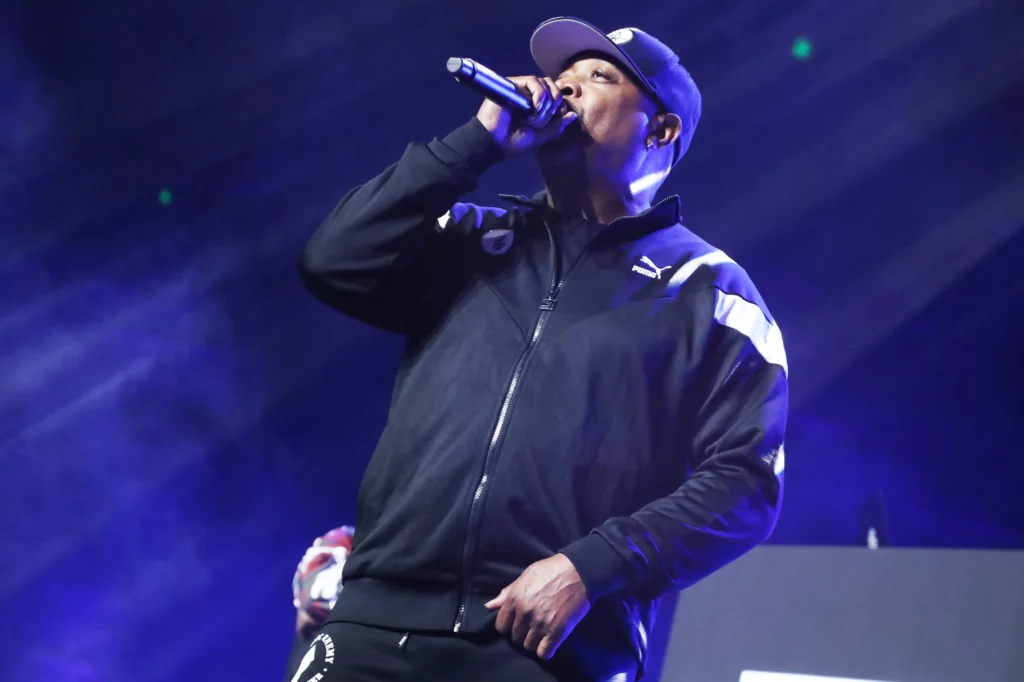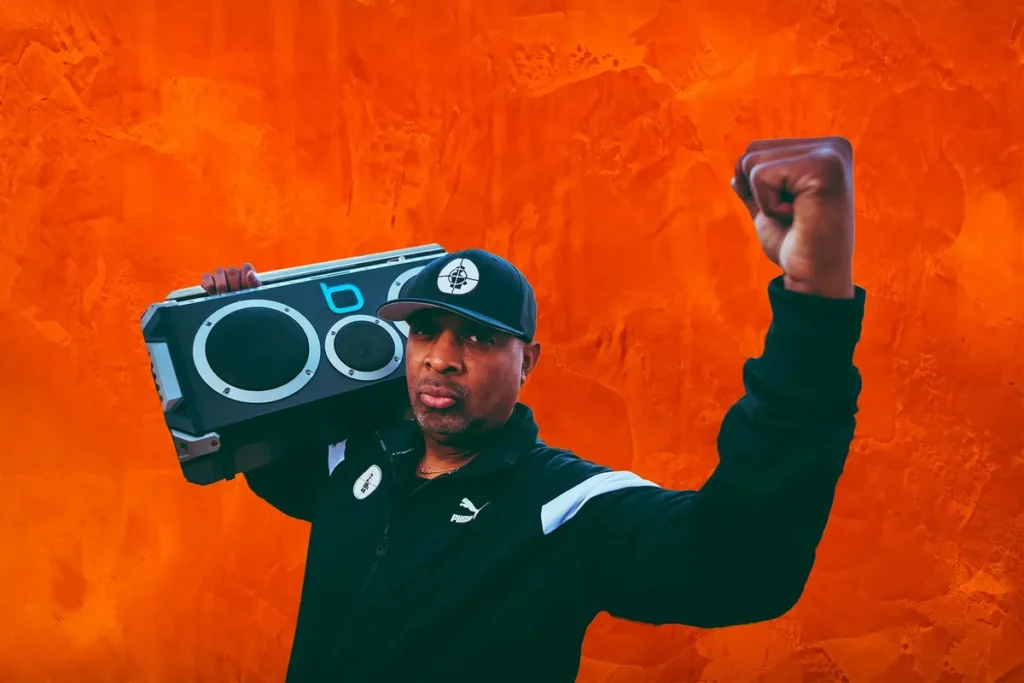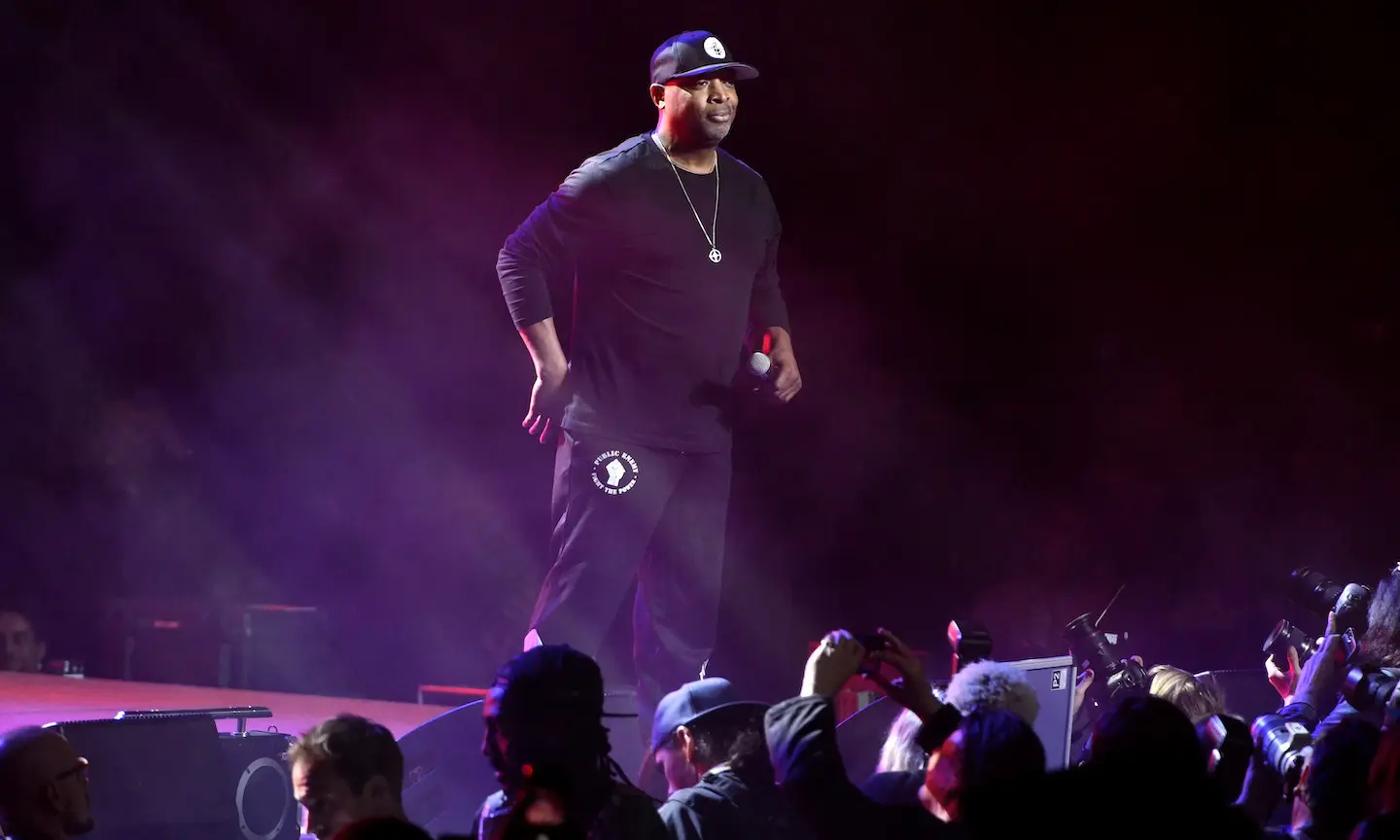Michel Martin of NPR talks with hip-hop artist Chuck D about the Fight the Power documentary on PBS. The show talks about the political and social situations that made hip-hop possible.
MICHEL MARTIN, HOST:
Today, a documentary series looks back at how hip-hop got started.
(SOUNDBITE OF SONG, “FIGHT THE POWER”)
CHUCK D: (1989, the number, another summer) I’m rapping.
FLAVOR FLAV: Get down.
CHUCK D: (Rapping) The sound of the funky drummer.
MARTIN: “Fight the Power: How Hip Hop Changed the World” is the name of the PBS show. Chuck D of Public Enemy, who was one of the first hip-hop artists, helped make it.
(SOUNDBITE OF SONG, “FIGHT THE POWER”)
CHUCK D: (Rapping) Our right to speak our minds is our right to die. We have to fight the powerful people. Fight the authority. Fight the authority.
MARTIN: The four-part series shows how musicians, breakdancers, and emcees were influenced by their surroundings to create a new kind of music. And the man himself, Chuck D, is here to talk about the PBS show “Fight the Power.” Hello, Mr. Chuck D., We’re glad you could join us.
CHICK D: Thanks, Michel, for having me on. It really is a joy. I often listen to you from the other side, and it sounds good that I’m on.
MARTIN: Okay, thanks. I really like that. So, what made you decide that this was the story you wanted to tell now? Why is this happening now?
CHICK D: I asked this question a lot, especially Lorrie Boula, who is my managing partner on this project. I told you, “Listen, we’re about to start the 50th year.” And for the last ten or twenty years, the story has been told by someone else.
How do we take responsibility for where it came from? And how can we tell the story in its 50th year in a way that stays true to its heart? And also ask, “If this is a rose that grew out of the concrete, where did all the broken pieces of concrete come from?”
MARTIN: Let me just play a little bit of – from the first episode, which is where the story kind of begins. I want to point out that you are not only one of the co-producers but also the person who tells the story. And here’s a bit about how you sort of make your case.
(Soundbite from the documentary “Fight the Power: How Hip Hop Changed the World”)
CHICK D: You have to go back to the beginning to understand how this movement started in the poorest and most oppressed part of New York City. In the 1960s, hip-hop got its start. I was born in that decade. Hip-hop was made by people who didn’t like the way things were going.
MARTIN: Can you say a little more about how you think the environment helped shape and make this art form?
CHUCK D: I think the environment always inspires people who have been silenced to make some kind of art. I don’t think hip-hop and rap music are that different from blues, folk, and jazz, especially when it comes to Black and brown folk, especially Black folk.
We couldn’t tell our oppressor how we felt about him, so it came out in the music. But our music and culture are always born out of something that looks dark and hopeless, and we bring light to it.

MARTIN: There’s a theory that hip-hop started because schools in New York were underfunded and didn’t teach things like music. Instead, people made music with what they had, like their records, their bodies, and their voices. Do you agree or disagree with that idea?
CHUCK D: Yes, ma’am. Michel, it’s not just the lack of investment in the schools. It starts with the lack of investment in your daily life and community as a whole. And that leads to it. People create things out of nothing.
No different from a person in the middle of the Delta in 1935 who tied a cord to the side of a shack and wrote a note on it, do you get what I’m saying?
A simple washboard. Well, hip-hop was able to take maybe abandoned turntables and records left on the side, get some electricity from a pole, and really make lemonade out of lemon rinds. So, you know, that’s the beauty of it.
And I saw with my own eyes, you know, it was the technical side of hip-hop that really got me interested and made me realize that this wasn’t a band. Black people always had someone in their family who played music, so we were always exposed to music when we were in a band.
We liked music, and if we didn’t learn it at home, we learned it at church or through a program in the community that made people like music.
We were always people with ideas. But this language came from a time when people didn’t have much power and when electricity, turntables, and records were the only ways to make music.
MARTIN: The name of the documentary comes from Public Enemy’s 1989 hit song “Fight for Power,” which you first released as part of the soundtrack to Spike Lee’s movie “Do the Right Thing.” I’d like to play a clip of you talking about that. Here it is.
(Soundbite from the documentary “Fight the Power: How Hip Hop Changed the World”)
CHUCK D: Spike says, “Hey, I’m making a movie about this thing that’s going on in New York.” There’s a lot of BS going on. Hey, dude, I need the song.
(SOUNDBITE OF SONG, “FIGHT THE POWER”)
CHUCK D: Fight against authority. Fight the authority. Fight the authority.
MARTIN: Do you remember when you first thought of that song? And do you remember when you knew you said what you wanted to say? Was it like a “light bulb” moment, or did it just happen over time?
CHUCK D: Michel, I think it was the end of something. I remember that the song went through four or five different stages before Branford Marsalis played his sax part on different dub versions while Hank and Eric “Vietnam” Sadler was in the studio.
So, it was built up over time. When it finally came together, there was a lot of planning for the third verse, which is the famous “Elvis and John Wayne” verse that often makes people think of the song as a whole. But I tell people that I had to do this song because I was asked to.
And the third verse was a direct answer to Giancarlo Esposito’s question, “Hey, Sal, why aren’t there any Black people on your wall?” Then Danny Aiello says his answer, which is pretty much answered in the third verse of “Fight the Power.”
(SOUNDBITE OF SONG, “FIGHT THE POWER”)
CHUCK D: (Rapping) Elvis was a hero to most, but he never meant to be one to me. You see, it was clear and simple that the person was racist.
FLAVOR FLAV: [Expletive] him and John Wayne, he raps.
CHUCK D: (Rapping) Because I’m Black and I’m proud. I’m all set. I’m excited and pumped. Most of my heroes don’t have stamps with them.
MARTIN: On Tuesday, February 21, the last two episodes of “Fight The Power” will be shown back-to-back. I also want to point out that you touch on a few themes in that. You check out the West Coast scene, which has a different kind of beat.
But you also talk about how the number of violent images in the genre grew and became a real problem for a lot of people. It became important. You also talk about how the hip-hop sound, which began in neighborhoods with mostly Black people, spread to more and more people.
So, could you talk about those two things? They are not the same, but if you would, talk about those two things.
CHUCK D: I’m sure that artists can be anything they want to be. Artists can say anything. No one holds the artist accountable or responsible for their art. But I think that the responsibility and what has gone wrong are the curation, management, neglect, and care of an art form when it is actually shared with the world.
Could have gone better. I think that just put it in a place where the person looking at it could try to figure out what it is. And that got them stuck in a ditch. Hip-hop and rap music don’t impress me at all. If you want to say it started on August 11, 1973, at Sedgwick 1520 in The Bronx, I was 13 years old.
Read More:
- The 8 Best New Hip-Hop Songs of This Week
- Gold Liquid Kratom Shots: Why Is It Among The Best-Selling Products At MIT45?
MARTIN: I hear you, not that you’re keeping track, but (laughter).
CHUCK D: Well, I saw it when I was a kid riding a tricycle. My job is to make sure that it doesn’t, you know, drive completely off the road.
MARTIN: I like what you said, though. You said that you don’t respect it, so you can criticize it. Does that sound right?
CHUCK D: I don’t like to say that I could be critical of it, but I’m very critical of the people who take care of it because I think that a lot of the time, the people who take care of it are the ones who kill it.
MARTIN: Well, before we let you go, I should tell you that you also have a new book out called “Livin’ Loud by Chuck D.” (ph). It’s a book with sketches you’ve made over the years. I’m sure your closest friends and family have always known that you liked to draw. So, what finally made you decide to let everyone see this work?

CHICK D: I used to be a painter. I’m one of these guys, but I’m not an artist who also plays music. I’ve always been an artist who fell into music by accident. Since 2016, I’ve made about 20,000 illustrations, which led to art books, artwork, and prints.
MARTIN: Before we let you go, who do you hope this series will reach? Is there someone you want to see in particular?
CHUCK D: Everyone says they like hip-hop, which is true. You don’t have to like hip-hop. When someone says they love something, I tell them they should know about it. I agree. If you say you love someone, you should at least know something about them.
So, it’s not necessary to like hip-hop. But I used to ask a very clear question that got me a lot of different answers back in the day. I say, “You like hip-hop, right?” I do like hip-hop, though. You like Black people, right? They would sometimes say, “What does that have to do with it?”
A-ha, gotcha. You know, because, I mean, you should know about the people who made this, instead of just looking at the result.
MARTIN: That was Chuck D, one of the people who made the PBS documentary series “Fight the Power: How Hip Hop Changed the World.” He also tells the story. This Tuesday, February 21, the last episodes of the show will air. You can watch all of the episodes at pbs.org. Thank you so much for taking the time to talk to us, Chuck D. It’s been a real pleasure to have this time with you.
CHUCK D: I always appreciate the chance. I mean, you guys are the 8th greatest thing in the world.

